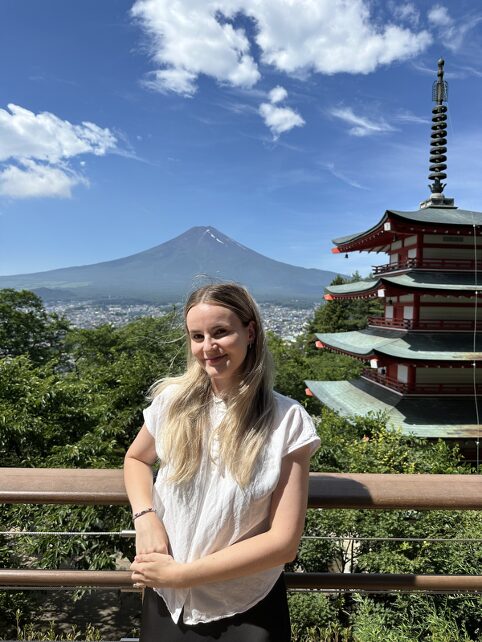Izzy’s internship experience

June 24, 2025
As a fourth year International Relations and International Organisation student, I had learnt about refugees and migration through various courses, but only in theory. Despite this being a particular interest of mine over the course of my bachelor, the theoretical aspect of learning, whilst useful, can be outdated and ignores the complexities of the refugee issue, which is something that is ever changing and shouldn’t be confined to a classroom. Having studied my bachelor’s degree in the Netherlands, it was clear that some of the content was being taught from a Western centric perspective, often portraying refugees as helpless, even if unintentionally, and perhaps the refugee ‘issue’ being framed as a geopolitical problem to be solved between ‘policy’ and ‘people’. These hierarchies that are unintentionally perpetuated, differed from those of REI, in which refugees are at the forefront of the projects, organising and leading. The internship showed me that support doesn’t come from speaking on behalf of refugees but listening and making space for them to lead the discourse and projects themselves as individuals.
I was inspired to seek out a different angle to the refugee issue, a more practical one, that doesn’t necessarily generalise in the same way that a textbook might do. Having had the opportunity to intern at REI, I was given an insight into not only the working world of NPO’s, but the unique and personal stories of refugees that the projects support. This allowed me to feel closer to the issue than before, as well as seeing the way in which REI approaches the plight of refugees, in a sustainable manner that ensures refugees are at the forefront of these projects, as opposed to implementing projects on the refugees behalf, with little collaboration or consultation with the local communities.
An added layer to this internship was the fact of being based in Tokyo, with this being my first time in Japan. Despite the projects not being based in Japan itself, I learnt a lot about the refugee discourse and politics in the country, which as a tourist or for people outside of Japan, would not necessarily be something you would learn about otherwise. Japan doesn’t dominate global headlines when it comes to refugee resettlement, yet I’ve heard from those living here, that for refugees, there is a more bureaucratic form of exclusion and mindset, in paperwork, policy gaps and social silence. A poignant example of this that stood out for me, was the Japanese word for refugee, “難民”, meaning ‘difficult people’, which whilst potentially meaning someone who is in a difficult situation, the literal translation otherwise implies refugees being difficult, and that this terminology may require a more nuanced and considered approach to the refugee issue.
Overall, my internship experience gave me a broader perspective on the refugee issue, and one that I will carry with me as I move onto the next chapter, studying a masters in public policy and governance at the University of Amsterdam.
Isabella Drysdale, Intern 2025